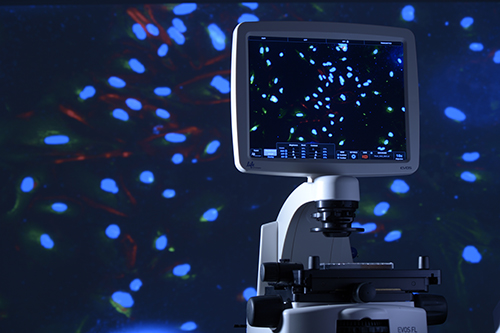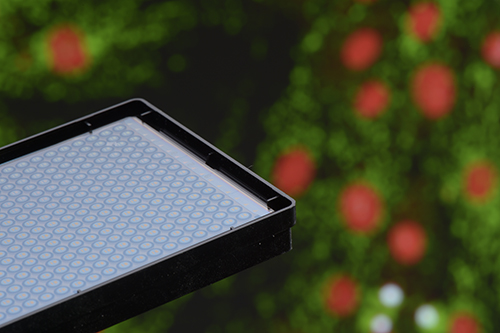Fraunhofer IME is providing the key link between biologists and data scientists in the EU funded consortium E4C to counter the coronavirus pandemic.
Fraunhofer IME is providing the key link between biologists and data scientists in the EU funded consortium E4C to counter the coronavirus pandemic.


FRANKFURT. As part of its emergency funding of research activities against the new coronavirus SARS-CoV-2, the European Commission has announced a grant of 3 million euros to Exscalate4CoV (E4C), a consortium of 18 institutions from seven European countries, in which the Division for Translational Medicine of the Fraunhofer IME plays a key role. E4C strives to identify molecules that could work against the virus by using advanced screening and computing techniques. The public-private consortium is led by the Italian company Dompé farmaceutici S.p.A., whose in silico-platform as part of the Exscalate network, allows for an ultra-rapid virtual screening of potential drugs against pathogens.
In the framework of the project, E4C’s virology experts will characterize proteins in the viral genome, which are essential for the infection of the cell by SARS-CoV-2. Dompé and E4C data scientists will then predict which compounds could hit these target proteins in order to inhibit viral replication. Subsequently, to identify the most promising of these compounds, the Fraunhofer project team will systematically test them on its automated robotic screening platforms, while structural biologists from other E4C partners will explore the exact interaction of the chemical hits with their underlying viral targets. Thus, Fraunhofer IME will be providing the key link between biologists and data scientists in the consortium. Fraunhofer IME is also responsible for managing data in the consortium and ensuring a timely open access publication of its results.
The E4C partners will further examine the efficacy of already marketed and investigational drugs for the treatment of COVID-19 patients. Fraunhofer IME has specialized in such repurposing efforts in many diseases. The Institute has a repurposing set of 5400 compounds available that have reached clinical use across 600 indications and recently invested in a state of the art High-Content Analysis System for use in profiling the compounds. Together with scientists from Leuven, Belgium, the Fraunhofer team will analyse these compounds to identify drugs which may either act directly on the virus or strengthen the defence mechanisms of human host cells. "This strategy builds on our deep expertise in repurposing existing marketed drugs towards new indications”, says Dr. Philip Gribbon, Screening Port, Division Translational Medicine, Fraunhofer IME. “We believe it holds great promise of finding an effective drug treatment for COVID-19 infection in the shortest possible timescale.”
“Identifying treatments against the new coronavirus will be an enormous undertaking”, adds Prof. Dr. Dr. Gerd Geisslinger, Executive Institute Management, Fraunhofer IME. “Yet based on the scientific excellence of the Fraunhofer IME team, we are confident that our commitment to providing solutions to the challenge posed by COVID-19 can make a real difference for those affected by this epidemic.”
 Fraunhofer Institute for Molecular Biology and Applied Ecology IME
Fraunhofer Institute for Molecular Biology and Applied Ecology IME